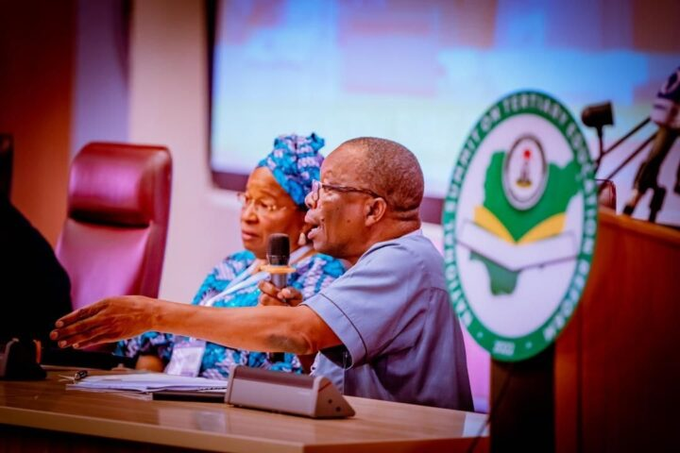Education in Nigeria
ASUU voices concern over corruption, weak institutions, tasks FG

Academic Staff Union of Universities (ASUU) has sounded the alarm over the high level of institutional weaknesses, bureaucratic inefficiencies and pervasive corruption in the country, which it says continue to run down governance at all levels.
ASSU on Sunday lampooned the federal government, yesterday, was berated for allegedly not taking the issue of welfare of federal polytechnics workers with the seriousness it deserves.
Meanwhile, the Social Science Academy of Nigeria (SSAN) has decried the recent remarks by the Minister of Education, Dr Tunji Alausa, that Nigeria has surfeit of Social Science graduates.
ASUU expressed its worries during its 23rd National Delegates Conference at the University of Benin (UNIBEN) main campus in Ugbowo, Benin City, Edo State, where a new leadership for the union is expected to emerge.
The National President of ASUU, Prof Emmanuel Osodeke, condemned the lack of inclusiveness, transparency and accountability in governance. He also decried worsening existential conditions resulting from the government’s adoption of neo-liberal economic policies, which he claimed were breeding apathy, cynicism, self-help, criminality and migration (japa) among the youth.
Osodeke noted that despite Nigeria’s vast oil reserves, agricultural potential, and energetic youth population, the nation still battles high unemployment, inflation, a depreciating currency, and rising poverty rates.
He tasked the government to fight corruption and strengthen institutions in the country.
The National President of Senior Staff Association of Nigerian Polytechnics (SSANIP), Adebanjo Ogunsipe, said on Sunday, in Abeokuta, Ogun State, that with the terrible economic situation, “Nigerian workers deserve more than the government is giving them,” adding that members of his association constitute a formidable pillar in the polytechnics education system and deserve to be treated well.
He decried that present salary structures that could not sustain the worker in the first instance were not paid as and when due.
Ogunsipe voiced disappointment at what he saw as the Federal Government’s “insensitivity” to the plight of polytechnic employees.
He charged President Bola Tinubu to consider technical benefits inherent in polytechnic education in the policies of his government, pointing out that polytechnic education is the propeller of economic development for a society that embraces it.
The SSANIP President, however, warned against a face-off that might be inevitable if urgent actions were not taken by the government, as there’s a limit to human endurance.
SSANIP insisted that social science disciplines were vital to addressing the country’s deep-rooted economic, political and social challenges.
The minister, while presenting provisional licences to 11 newly approved private universities in Abuja on April 30, 2025, lamented that Nigeria had produced excess graduates, who studied social science-related courses and saturated the labour market, urging universities to shift focus to Science, Technology, Engineering and Mathematics (STEM) education.
According to the minister, what the country needs now is problem solvers and not those who would graduate to become job seekers in the already saturated labour market.
But President of SSAN, Prof Chike Okolocha, in a statement, described the minister’s remarks as “a violent negation of the Universities Autonomy Law” and an example of “anti-intellectualism” by public officials.
He said: “The position of the minister is not guided by facts. He was silent on the present number of social science graduates in the country and the quantum deemed desirable. Nigerians challenged a similar unproven statement on the surplus of medical doctors in Nigeria by former Minister of Labour, Dr Chris Ngige. We believe that Dr Alausa’s statement does not reflect public policy.
“Social sciences were birthed out of the quest and intellectual introspection to find solutions to the social problems that arose from the Industrial, American and French revolutions and, latterly, World War I and II. In the 21st century, these social problems have multiplied by leaps and bounds.”
The academy urged the Federal Government to distance itself from the minister’s comments, emphasising that national development requires the contributions of both technical and social science professionals.


